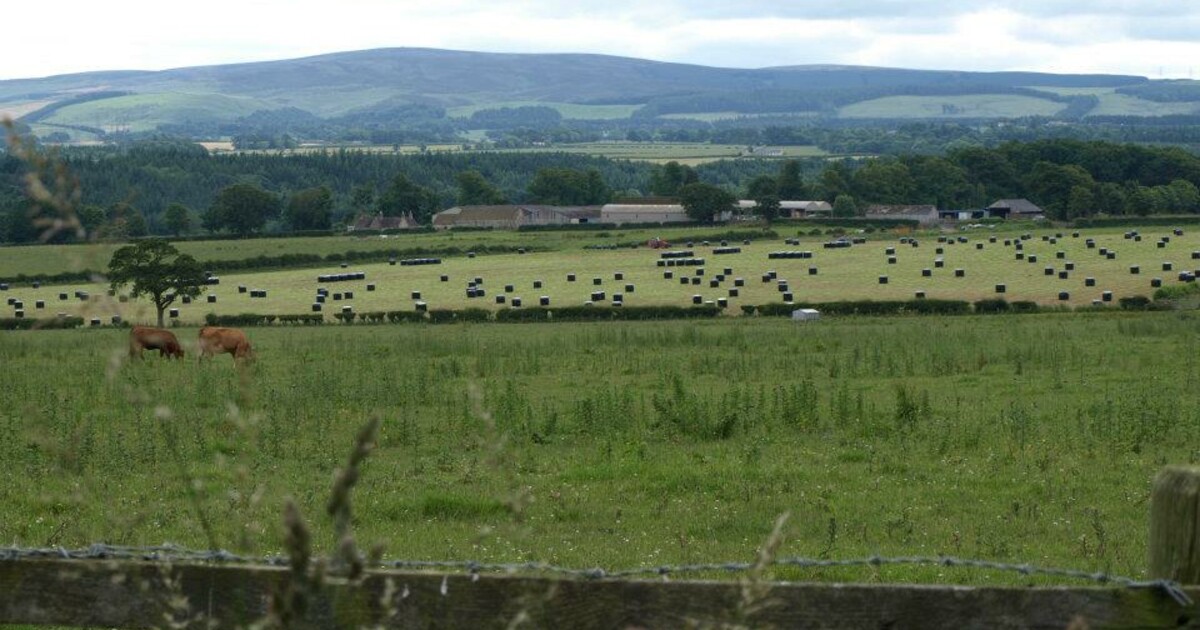We have an opportunity to design a sustainable system of farming

This week the Scottish Government launched a consultation into the future of farm and rural funding in Scotland post-Brexit. The Common Agricultural Policy (CAP) is the single biggest slice of the EU budget, accounting for 38% of all the money spent across Europe, and it has underpinned our farming system for over 40 years.
The CAP isn’t just direct payments to farmers, but includes a whole raft of wider measures supporting our rural areas and rewarding the things the market doesn’t pay for, like reforesting farmland, maintaining waterways, creating natural habitats for wildlife, and supporting young people into farming. So it’s pretty urgent that we decided what will replace it.
Greens are proudly pro-Europe, and will defend our membership of the EU right up until Brexit day and beyond. But that doesn’t mean we don’t have criticism, and the CAP is one of the areas where Greens across Europe have fought for reform for many years. Too often it puts public funds in the hands of the big agri-businesses that need it the least, and it has struggled to adapt to the changing landscape emerging due to climate change.
The opportunity we have now to design our own system is a precious chance to show the rest of the EU what a sustainable system of farming support would look like. We can begin again, laying a vision for a system which produces healthy food, uses our natural resources wisely, maintains and enhances our native ecosystems, and helps repopulate the straths and glens that have lain empty for generations.
Sadly, the consultation launched this week by Fergus Ewing contains none of this vision. It takes our current system as the starting point, and looks to make as few tweaks and ‘streamlinings’ (read cuts) as possible. There is no discussion on the principles that should underpin our farming system, and proposes a ‘business as usual’ model focused purely on economic growth.
We could be doing so much more, and delivering on the things that really build vibrant rural communities, like access to land, good local services, and a clean, diverse, thriving environment.
We often hear farming faces a crisis due to a lack of new and young people wanting to farm, but last year a survey by the Scottish Farm Land Trust found nearly 1,000 people in Scotland wanting to set up farm businesses but unable to access land. Our crisis is not in a lack of interest, but in our current standard model of farming which has huge start-up costs, high rates of solitary working, and little financial reward.
A more diverse mix of smaller farms, who may combine food production with other rural businesses such as crafts, tourism or home-based services, could help fulfil this demand for new farmers and boost our rural population significantly in the process. Mechanisms such as tethering farm payments according to size, and supporting job creation in sectors like market gardening could help achieve this, but we also need to combine it with the radical land reform agenda currently being championed in Scotland too.
We do however face a real crisis in our post-Brexit food supply – particularly regarding fruit and vegetables, which we know we should be consuming more of yet many families struggle to access already. We only grow 58% of all the vegetables we eat in the UK, with the rest filled overwhelmingly by imports from the EU – and a no-deal Brexit could see import tariffs of 40% slapped onto this food overnight.
Fruit and veg production gets some of the lowest levels of support under the current system, so we need to urgently think about what we can do to increase this. Public money should be directed towards healthy food production, and not subsidising mass production of biofuels or barley for malting into whisky.
We also need to seriously look at how we reduce our dependence on synthetic fertilisers and pesticides. When we talk about the carbon footprint of agriculture, we usually think about emissions from animals and the carbon released by tilling the soil. But we forget that much of our agriculture routinely overuses fossil-fuel based fertilisers, and just like the energy sector, we need to see a transition to renewable and organic methods fast.
Back in the first session of the Scottish Parliament, Green MSP Robin Harper proposed a bill to introduce ambitious organic targets for Scotland’s farmers. If we had adopted that world leading legislation, we would be well on the way to de-carbonising our farming system.
When 1 in 5 of our mammals in the UK face extinction, we know we need to radically change how we are managing our countryside, and now is our opportunity to do this. If Fergus Ewing won’t lay out a path to achieve this, the Scottish Greens will.
